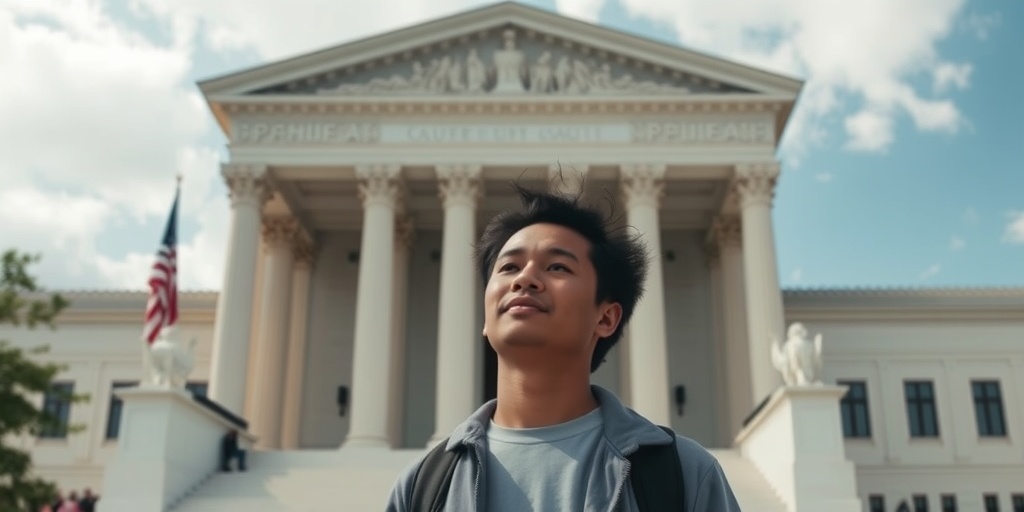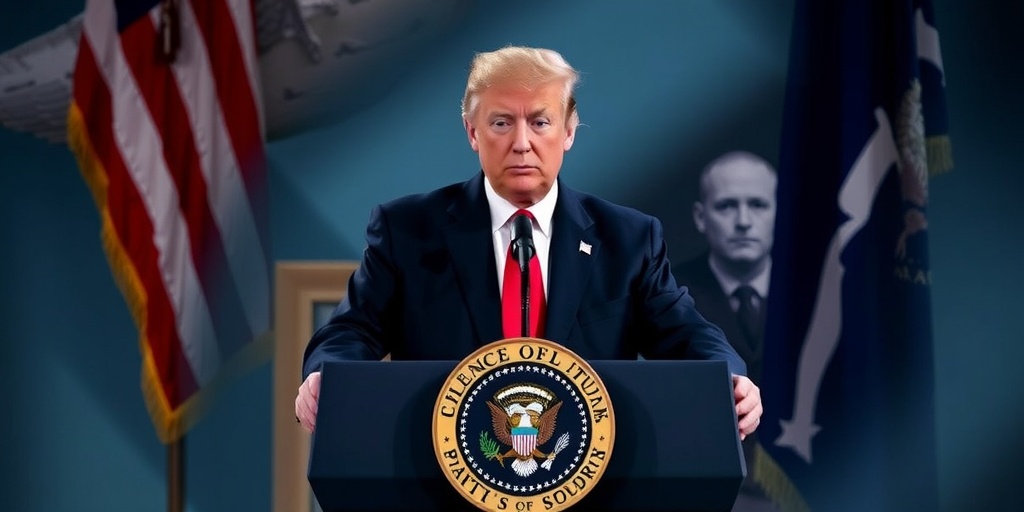Now Reading: Supreme Court Rules in Favor of Wrongfully Deported Migrant
-
01
Supreme Court Rules in Favor of Wrongfully Deported Migrant
Supreme Court Rules in Favor of Wrongfully Deported Migrant

Supreme Court Orders Government to Facilitate Return of Wrongly Deported Salvadoran Migrant
On Thursday, the Supreme Court of the United States issued a significant ruling regarding the case of Kilmar Armando Abrego Garcia, a Salvadoran migrant who was wrongfully deported by the government and subsequently imprisoned in El Salvador. The court’s unsigned order mandated that the government take steps to facilitate Mr. Abrego Garcia’s return to the United States, although it stopped short of outright demanding his repatriation, recognizing potential limitations on the judicial branch’s authority to compel actions from the executive branch.
The ruling supported parts of a trial judge’s prior order that had specified the need for the government to "facilitate and effectuate the return" of Mr. Abrego Garcia. The Supreme Court emphasized the importance of the government ensuring that his case is handled appropriately, as if he had not been improperly sent back to El Salvador in the first place. However, the court expressed concerns regarding the ambiguity of the term "effectuate," suggesting that it could extend beyond the district court’s jurisdiction.
As the case is sent back to the lower trial court, it remains uncertain when or if Mr. Abrego Garcia will be returned to the U.S. The Supreme Court indicated that the trial court should clarify its directives, while also respecting the executive branch’s role in foreign affairs. The court noted that the government should be prepared to provide details about the actions taken regarding this case, as well as any potential next steps.
The consensus among the justices appeared to be unanimous; however, Justice Sonia Sotomayor, joined by Justices Elena Kagan and Ketanji Brown Jackson, issued a separate statement criticizing the government’s actions. Justice Sotomayor expressed her concern that the government failed to provide any legal justification for Mr. Abrego Garcia’s warrantless arrest, deportation, or imprisonment. She emphasized the duty of the trial court to ensure that the government adheres to its legal obligations.
Attorney Andrew J. Rossman, who represents Mr. Abrego Garcia, expressed his satisfaction with the Supreme Court’s decision, stating, “The rule of law won today. Time to bring him home.” This case gained noteworthy attention due to the troubling circumstances surrounding Mr. Abrego Garcia’s deportation. Judge Paula Xinis, who oversaw the trial, described the actions taken by the Trump administration as a “grievous error” that “shocks the conscience.” She referenced a previous ruling from an immigration judge in 2019, which had granted Mr. Abrego Garcia a special status called “withholding from removal,” citing concerns about potential violence or torture he might face in El Salvador.
The government labeled Mr. Abrego Garcia, aged 29, as a member of the violent transnational gang MS-13, which has been designated as a terrorist organization. However, Judge Xinis dismissed these claims as being based on a “singular unsubstantiated allegation.” She highlighted that the evidence presented against Mr. Abrego Garcia amounted to little more than his clothing choices, including a Chicago Bulls hat, and vague accusations from a confidential informant claiming he was associated with MS-13, asserting that he had never lived in the area referenced.
In seeking to block the trial judge’s ruling, the U.S. solicitor general, D. John Sauer, argued that the lower court had overstepped its authority by engaging in what he termed “district-court diplomacy.” He warned that if this precedent were to be upheld, other district courts could require the U.S. to negotiate the return of other deported immigrants worldwide, effectively granting these courts extraterritorial jurisdiction over U.S. diplomatic relations.
Responding to this perspective, Mr. Abrego Garcia’s attorneys denounced the government’s claim of an error in the deportation process, describing it as a product of a "Kafka-esque mistake," emphasizing that their client remains imprisoned in a foreign prison due solely to the actions of the U.S. government. They argued that the trial court’s directive was routine and diverged from issues of foreign or domestic immigration policy.
Mr. Sauer maintained that while the administration acknowledged the removal to El Salvador was an administrative error, such mistakes should not enable district courts to assert control over foreign affairs or dictate executive actions regarding national security. He contended that Judge Xinis’s order was one of many instances in which district courts have exceeded their constitutional authority.
In her concluding remarks, Justice Sotomayor lamented the potential ramifications of allowing Mr. Abrego Garcia to remain imprisoned without justification, stating that it would be disgraceful to leave him in a Salvadoran prison when no valid legal grounds exist for his detention. She cautioned that the government’s stance implied a disturbing potential to deport and imprison any individual without legal recourse, raising alarming questions about the limits of executive power.
The Supreme Court’s ruling underscores the delicate balance between judicial review and executive authority, particularly in matters of immigration and foreign policy. As the case returns to the trial court, the future of Mr. Abrego Garcia remains uncertain, but the implications of this high-profile case resonate well beyond his individual circumstances, highlighting significant questions about accountability, human rights, and the rule of law in the United States.
Stay Informed With the Latest & Most Important News
Previous Post
Next Post
-
 01New technology breakthrough has everyone talking right now
01New technology breakthrough has everyone talking right now -
 02Unbelievable life hack everyone needs to try today
02Unbelievable life hack everyone needs to try today -
 03Fascinating discovery found buried deep beneath the ocean
03Fascinating discovery found buried deep beneath the ocean -
 04Man invents genius device that solves everyday problems
04Man invents genius device that solves everyday problems -
 05Shocking discovery that changes what we know forever
05Shocking discovery that changes what we know forever -
 06Internet goes wild over celebrity’s unexpected fashion choice
06Internet goes wild over celebrity’s unexpected fashion choice -
 07Rare animal sighting stuns scientists and wildlife lovers
07Rare animal sighting stuns scientists and wildlife lovers




















